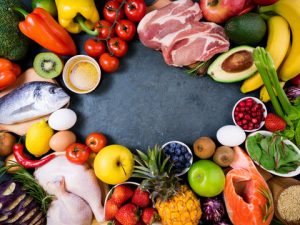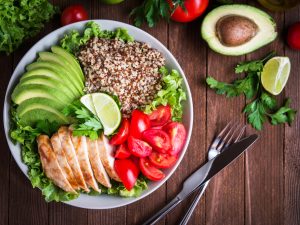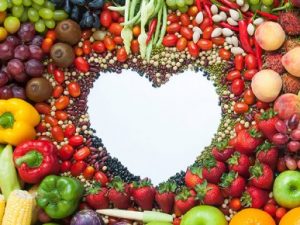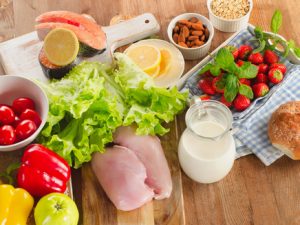Metabolism is a term used to describe all the chemical reactions that maintain the living state of cells and the body. Metabolism can be conveniently divided into two categories:
Catabolism - the breakdown of molecules for energy
Anabolism - the synthesis of all necessary components by cellsMetabolism is closely linked to nutrition and food availability. Bioenergetics is a term that describes the biochemical or metabolic pathways by which the cell obtains final energy. The formation of energy is one of the vital components of metabolism.
Nutrition is the key to metabolism. The pathways of metabolism rely on nutrients that they break down to produce energy. This energy, in turn, is required by the body to synthesize molecules like new proteins and nucleic acids (DNA, RNA).
Nutrients about metabolism comprise factors like the physical requirements for the different substances, the individual functions in the body, the amount needed, and the level below which poor health results.
Foods supply vital energy (calories) and supplies necessary chemicals that the body itself cannot synthesize. Food offers a variety of substances that are essential for the building, maintenance costs, repair of body tissues, and efficient functioning of the body.
The diet needs nutrients like carbon, hydrogen, oxygen, nitrogen, phosphorus, sulphur, and 20 other inorganic elements. The primary elements are supplied in carbohydrates, lipids, and protein. Also, vitamins, minerals, and water are necessary.
Carbohydrates in metabolism
Food supply carbohydrates in three forms: starch, sugar, and cellulose (fibre)—essential energy sources in the form of starches and sugars for humans. Fibres contribute to the bulk in the diet.
The tissues of the body depend on glucose for all activities. Carbohydrates and sugars yield glucose through digestion or metabolism.
The total reaction for the combustion of glucose is written as:
CHO6126 + 6 O2 —–> 6 CO2 + 6 HO2 + energy
Most people consume about half of their diet as carbohydrates. This comes from foods such as rice, wheat, bread, potatoes, and pasta.
Probably not. Although slow metabolism exists, it is rare. In general, it is not what is behind being overweight or obese, but rather, in the long run, it is the result of interactions between genetics, diet, physical activity and other factors.
Metabolism is the process by which your body converts what you eat and drink into energy. Even when you’re at rest, your body needs energy for functions like breathing, blood circulation, and cell repair. The energy the body uses for these essential functions is called basal metabolism.
Different factors determine the basal metabolism:
Body size and composition. If you weigh more or have more muscle mass, you will burn more calories, even at rest. So people who weigh more tend to have a faster basal metabolism, not a slower one because some of the excess weight is muscle tissue.
Sex. Men tend to have less body fat and more muscle mass than women of the same age and weight. Again, more muscle mass means burning more calories.
Age. As you age, muscle mass decreases, which decreases the degree to which calories are burned.Instead of slow metabolism, factors that often contribute to weight gain include the following:
Eating too many calories
Do little physical activity
Genetics and family history
Certain medications
Unhealthy habits, such as usually not getting enough sleepIf you’re concerned about slow metabolism and your weight, talk to your doctor about healthy changes you can make. Suppose you still think you have a slow metabolism. In that case, your doctor may monitor your metabolism or rare conditions that can cause problems with metabolism and weight, such as an underactive thyroid gland (hypothyroidism), Cushing’s syndrome, or Cushing’s syndrome. Polycystic ovary (PCOS).
Proteins in metabolism
Proteins are the main tissue builders in the body. They are part of every cell in the body. Proteins help in cell structure, functions, formation of hemoglobin to carry oxygen, enzymes to carry out vital reactions and a myriad of other functions in the body. Proteins are also vital in supplying nitrogen for DNA and RNA genetic material and energy production.
Proteins are necessary for nutrition because they contain amino acids. Among 20 or more amino acids, the human body cannot synthesize 8 and these are called the essential amino acids.
Essential amino acids include:
Lysine
Tryptophan
Methionine
Leucine
Isoleucine
Phenylalanine
Valine
ThreonineThe foods with the best quality protein are eggs, milk, soybeans, meats, vegetables, and grains.






























Add Comment